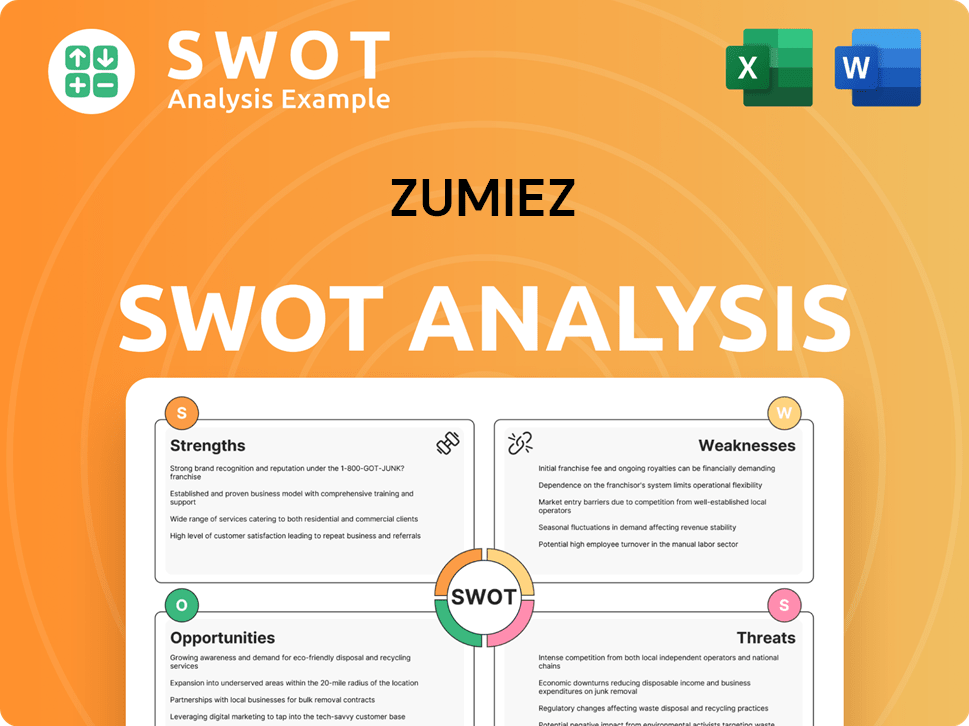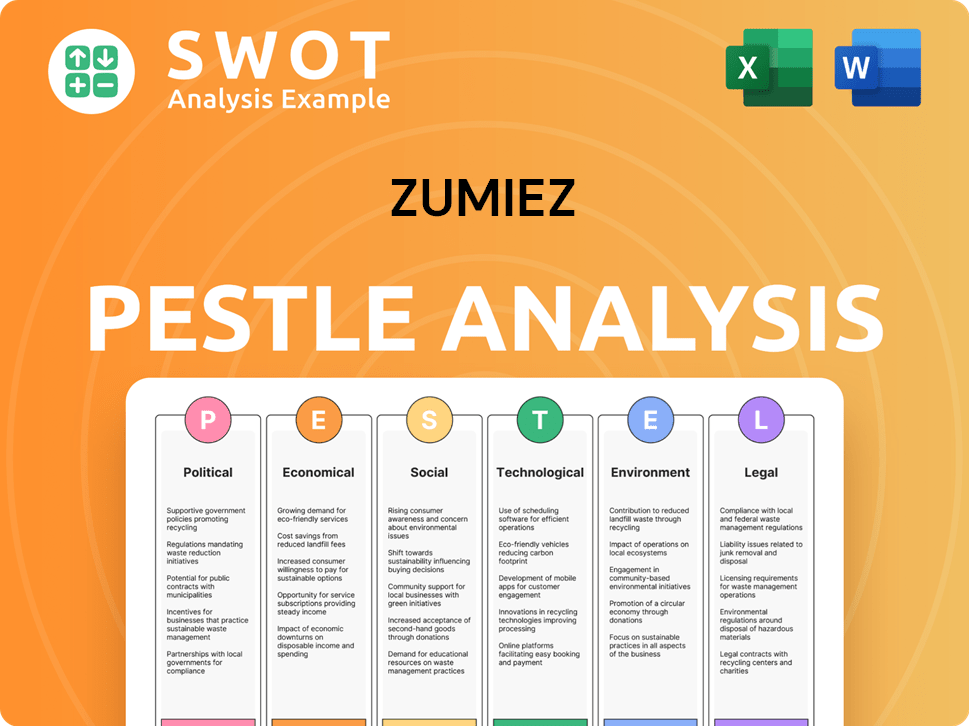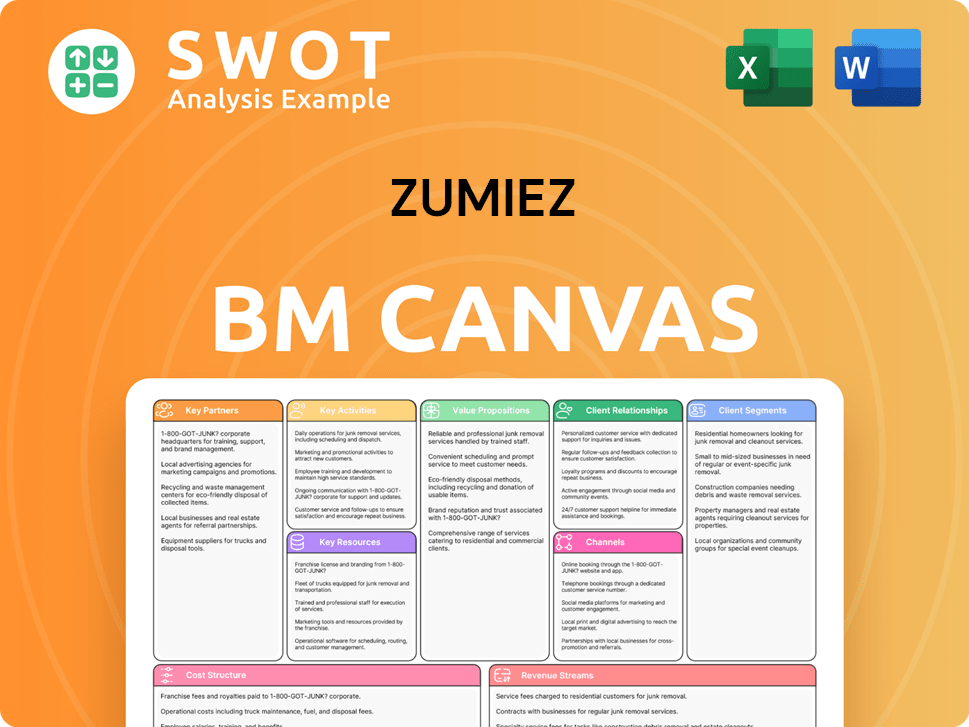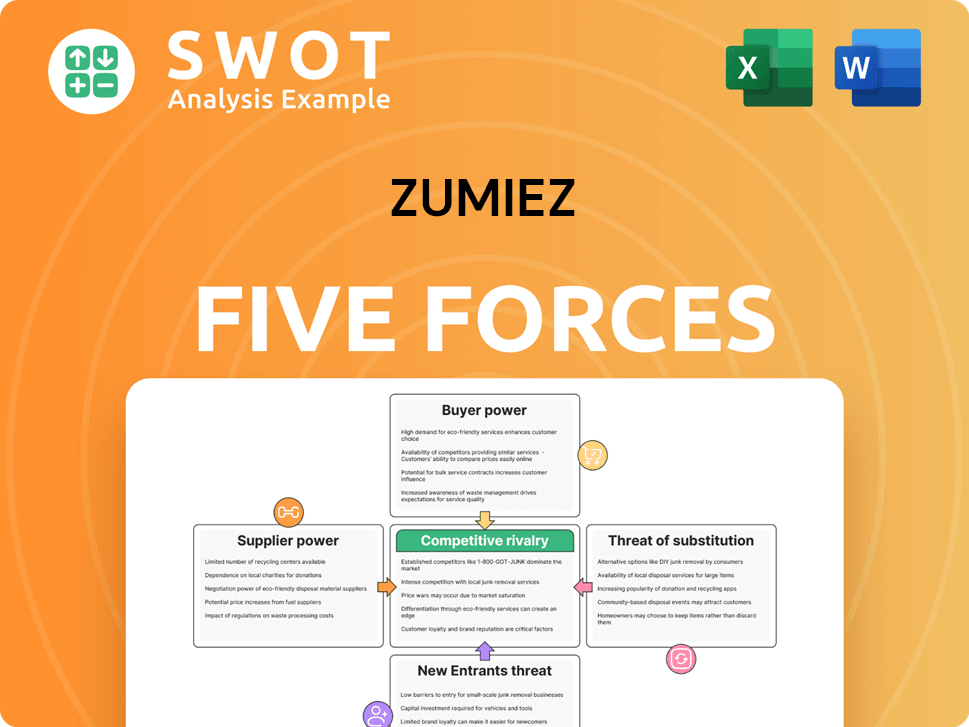Zumiez Bundle
How Did Zumiez Go From One Store to a Global Retailer?
Dive into the fascinating Zumiez SWOT Analysis and uncover the story of Zumiez, a retail powerhouse that started with a vision to serve the action sports and youth culture scene. From its humble beginnings in Seattle, Washington, to its current status as a global brand, Zumiez has consistently adapted to the ever-changing landscape of fashion and lifestyle trends. Discover how this company carved a unique niche in a competitive market.

This exploration of the Zumiez company background will delve into the Zumiez history, tracing its evolution from a single store catering to the skate and snowboard community to a multifaceted retailer. We'll uncover the pivotal moments in the Zumiez timeline, examining how the company's commitment to its core customer base and innovative retail strategies fueled its growth. Learn about the Zumiez founder and the early years that shaped its unique identity.
What is the Zumiez Founding Story?
The Zumiez history began in 1978 when Tom Campion established the company in Seattle, Washington. Campion saw an opportunity to serve the growing action sports culture, especially skateboarding and snowboarding. These sports were becoming increasingly popular among young people, creating a demand for specialized gear and apparel.
Campion aimed to create a retail space that reflected the spirit of action sports. This approach would attract customers who valued the culture and lifestyle associated with these activities. The company's early focus was on providing authentic products and connecting with the target demographic.
The initial business model centered on offering a curated selection of apparel, footwear, and hardgoods that resonated with the skate and snowboard communities. This included brands that were either emerging or already established within these subcultures, providing a level of authenticity and credibility that competitors often lacked.
Zumiez's early success was rooted in understanding and catering to the action sports market. The company's name, 'Zumiez,' reflects a youthful and energetic identity, aligning with its target audience.
- Zumiez founder Tom Campion identified a gap in the market for action sports retail.
- The first Zumiez stores offered a curated selection of products, focusing on authenticity.
- Initial funding likely came from bootstrapping and early investments.
- The company faced challenges in building supplier relationships and gaining community credibility.
Zumiez SWOT Analysis
- Complete SWOT Breakdown
- Fully Customizable
- Editable in Excel & Word
- Professional Formatting
- Investor-Ready Format

What Drove the Early Growth of Zumiez?
The early growth and expansion of the company, starting from its foundation in 1978, marked a significant transformation from a single store in Seattle to a major national and international retailer. This growth phase focused on establishing a strong regional presence in the Pacific Northwest, carefully selecting new store locations to cater to its target demographic. The company consistently emphasized its core product categories, including action sports apparel, footwear, and hardgoods, while continuously adapting its inventory to reflect the evolving trends in skate, snowboard, and youth culture.
Initially, the company concentrated on building a strong presence in the Pacific Northwest. This involved strategic store openings in areas with a high concentration of the target demographic. The company's success was rooted in its consistent focus on core product categories, such as action sports apparel, footwear, and hardgoods.
By the late 1980s and 1990s, the company began a more aggressive expansion, moving beyond its home state to establish stores across the United States. This expansion period saw a significant increase in store count. A successful formula of engaging store environments, knowledgeable staff, and a product assortment resonated deeply with its customer base.
A significant development in the company's growth trajectory was its initial public offering (IPO) in 2005, which provided substantial capital for further expansion and strategic initiatives. This allowed the company to accelerate its store opening program and invest in its e-commerce capabilities. Another pivotal move came with the acquisition of Blue Tomato in 2012.
In terms of market entry beyond the U.S., a pivotal move came with the acquisition of Blue Tomato, an Austrian-based action sports retailer, in 2012. This acquisition marked the company's significant entry into the European market. Further international expansion included the acquisition of Fast Times, an Australian-based skate shop, in 2020.
Throughout these growth phases, the company faced competition from larger sporting goods chains and other specialty retailers. Its ability to maintain authenticity and a strong connection with its niche market contributed significantly to its success. Strategic shifts included a continuous emphasis on omnichannel retail, integrating physical stores with online platforms to provide a seamless customer journey. As of February 2024, the company operated 754 stores across the United States, Canada, Europe, and Australia, demonstrating its significant global reach. For more insights into the company's financial strategies and business model, explore Revenue Streams & Business Model of Zumiez.
Zumiez PESTLE Analysis
- Covers All 6 PESTLE Categories
- No Research Needed – Save Hours of Work
- Built by Experts, Trusted by Consultants
- Instant Download, Ready to Use
- 100% Editable, Fully Customizable

What are the key Milestones in Zumiez history?
The Zumiez company has seen significant milestones throughout its history, evolving from a regional retailer to a global presence in the action sports and streetwear markets. These milestones showcase the company's strategic growth and adaptation to the changing retail landscape.
| Year | Milestone |
|---|---|
| 1978 | The first store was established, marking the beginning of the company's journey. |
| 2005 | Went public, which provided capital for expansion and growth. |
| 2012 | Acquired Blue Tomato, expanding its international presence significantly. |
| 2020 | Acquired Fast Times, further diversifying its global retail footprint. |
A key innovation for the Zumiez company has been creating an authentic retail experience, which is a core part of its identity. This includes a focus on staff who are part of the action sports culture, in-store events, and a product selection that reflects current trends and emerging brands.
The company focuses on creating an immersive retail environment, including staff who are part of the action sports culture and in-store events.
The successful integration of physical stores with a robust e-commerce platform provides a seamless shopping experience.
Strong relationships with various action sports and streetwear brands ensure a fresh and relevant product assortment. This often includes exclusive releases that drive traffic and excitement.
The Zumiez company has faced challenges, including the cyclical nature of the retail industry and changing consumer trends. Economic downturns and shifts in consumer spending, such as those during the COVID-19 pandemic, have also impacted sales and operational efficiency.
The retail industry's cyclical nature and fast-changing trends in youth fashion present ongoing hurdles. Economic downturns and shifts in consumer spending habits have impacted sales.
Competition from larger online retailers and direct-to-consumer brands necessitates continuous adaptation. The company must continuously evolve to stay relevant.
In fiscal year 2023, the company reported a net sales decrease of 10.9% to $949.2 million compared to $1.05 billion in 2022, reflecting macroeconomic pressures.
Zumiez Business Model Canvas
- Complete 9-Block Business Model Canvas
- Effortlessly Communicate Your Business Strategy
- Investor-Ready BMC Format
- 100% Editable and Customizable
- Clear and Structured Layout

What is the Timeline of Key Events for Zumiez?
The Zumiez company has a rich history, beginning in 1978 with its founding by Tom Campion in Seattle, Washington. The company's journey includes significant milestones, from its initial public offering in 2005 to international expansion through acquisitions like Blue Tomato in 2012 and Fast Times in 2020. In 2023, the company reported net sales of $949.2 million, demonstrating its continued presence in the challenging retail sector.
| Year | Key Event |
|---|---|
| 1978 | Zumiez was founded in Seattle, Washington, by Tom Campion. |
| 2005 | Zumiez Inc. went public with its Initial Public Offering (IPO). |
| 2012 | Acquired Blue Tomato, an Austrian-based action sports retailer, expanding into Europe. |
| 2018 | Celebrated 40 years in business. |
| 2020 | Acquired Fast Times, an Australian-based skate shop, further expanding its international presence. |
| 2023 | Reported net sales of $949.2 million for the fiscal year. |
| 2024 | Continues to operate 754 stores globally across the United States, Canada, Europe, and Australia. |
The company is expected to focus on omnichannel retail, integrating physical and digital platforms. This involves enhancing e-commerce capabilities and optimizing mobile presence. Investment in digital infrastructure is crucial for continued growth, especially with the rise of online shopping.
Expansion plans may include strategic store openings and strengthening its presence in existing international territories. Adapting its product assortment to reflect evolving youth culture trends will remain a priority. Maintaining authenticity within the action sports and streetwear communities is key.
The increasing demand for sustainable and ethically produced goods will impact future strategies. Adaptation to social media and influencer marketing is also important. The company needs to align its marketing and sourcing practices with these trends and consumer expectations.
Analyst predictions suggest a continued focus on niche markets and a strong brand identity. Connecting with the core customer base and adapting to their evolving preferences is crucial. The company aims to cater to young individuals expressing their individuality through action sports and unique lifestyles.
Zumiez Porter's Five Forces Analysis
- Covers All 5 Competitive Forces in Detail
- Structured for Consultants, Students, and Founders
- 100% Editable in Microsoft Word & Excel
- Instant Digital Download – Use Immediately
- Compatible with Mac & PC – Fully Unlocked

Related Blogs
- What is Competitive Landscape of Zumiez Company?
- What is Growth Strategy and Future Prospects of Zumiez Company?
- How Does Zumiez Company Work?
- What is Sales and Marketing Strategy of Zumiez Company?
- What is Brief History of Zumiez Company?
- Who Owns Zumiez Company?
- What is Customer Demographics and Target Market of Zumiez Company?
Disclaimer
All information, articles, and product details provided on this website are for general informational and educational purposes only. We do not claim any ownership over, nor do we intend to infringe upon, any trademarks, copyrights, logos, brand names, or other intellectual property mentioned or depicted on this site. Such intellectual property remains the property of its respective owners, and any references here are made solely for identification or informational purposes, without implying any affiliation, endorsement, or partnership.
We make no representations or warranties, express or implied, regarding the accuracy, completeness, or suitability of any content or products presented. Nothing on this website should be construed as legal, tax, investment, financial, medical, or other professional advice. In addition, no part of this site—including articles or product references—constitutes a solicitation, recommendation, endorsement, advertisement, or offer to buy or sell any securities, franchises, or other financial instruments, particularly in jurisdictions where such activity would be unlawful.
All content is of a general nature and may not address the specific circumstances of any individual or entity. It is not a substitute for professional advice or services. Any actions you take based on the information provided here are strictly at your own risk. You accept full responsibility for any decisions or outcomes arising from your use of this website and agree to release us from any liability in connection with your use of, or reliance upon, the content or products found herein.